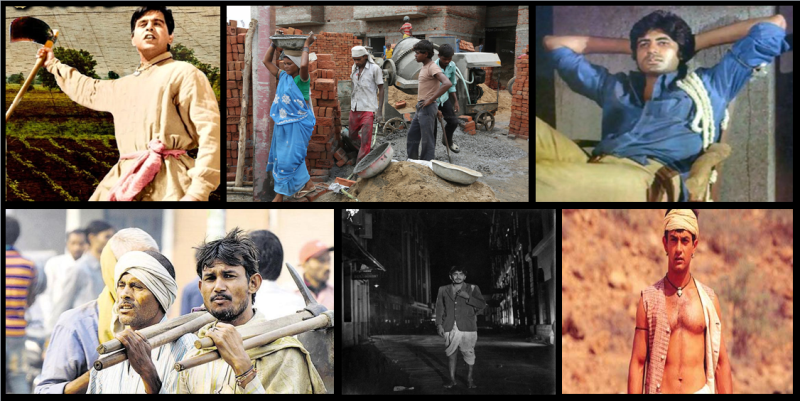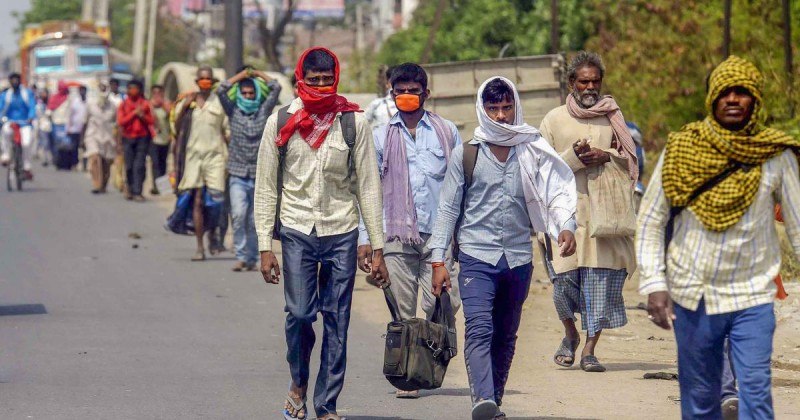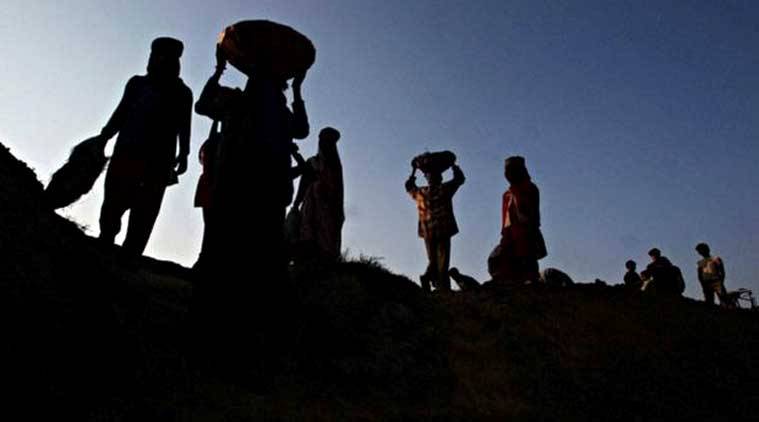One of the most significant questions haunting the Indian economy amid the ongoing nationwide lockdown is regarding the easy availability of migrant workers in cities post-lockdown.
Faced with immense hardships, loss of life and livelihoods and an extremely difficult journey from their workplace to their native villages, will migrant workers be as enthusiastic about returning back to the metros, even when all is normal?
Millions of migrant workers have been left jobless by India’s coronavirus lockdown and countless workers have had to walk for thousands of miles home amid conditions that we cannot even fathom. Many migrants also lost their lives in accidents along the way and this ordeal has made them reluctant and afraid of ever returning back.
And this is evident because in many states, restrictions on the function of core industries have been eased but there continues to be a crisis of workers to reboot them. It is tragic to see that while the migrant workers compose an army of over 100 million people in India and make up for 20% of the total workforce, they are hardly visible in the states’s priorities or in its policies.
Migrant workers flock from native villages to towns and cities in search of jobs. It is in these cities and towns that their skills are consumed by the manufacturing, construction and hospitality industries amidst a host of other avenues
More than 80% of the migrant worker population in the country is composed of men. These men generally have large families back in their villages whom they are meant to support and sustain. They send back their earnings, keeping only a tiny sum to themselves.
Since most of the migrant workers depend on daily wages or extremely meagre salaries, it is difficult for them to build their savings and thus when reports from the ground suggested that within days of the announcement of the lockdown, a majority of migrant workers were out of food and money, it wasn’t a surprise at all.
The migrant crisis seems to be only growing with every passing day, and given their economically impoverished and politically absent nature- it is possible that many migrant workers will be reluctant to come back to the cities, even once things are normal.
Those who walked out of the cities amid utter despair and helplessness were not just millions of unknown, insignificant and destitute persons but construction workers, skilled, semi-skilled and unskilled workers employed in the garment, food production and machinery industries along with hospital, hotels, offices, residential complexes, shops and several other key sectors without whom city life is unimaginable. They may be absent from the larger political discourse but it is through their labour that cities sustain themselves and their earning support the rural communities, thus their choice of n0t returning back to the cities could have serious implications on the Indian economy.
Labour shortage and suspension of industrial work would hamper India’s economy, if these workers don’t return back.
But it’s not as if industries and other key production units are not aware of the important contributions made by these migrant workers. It is for this reason that both the Centre and the states are trying to find ways to lure migrant workers back into the steam.
The Indian government too has begun to take cognisance of the matter and has announced its plans of spending 35 billion rupees on the food for migrant workers and provide them with jobs under a rural employment scheme.
But while all the developments take place and migrant workers become fodder for daily news amidst the coronavirus pandemic, the extremely traumatic experience that they have had amidst the lowdown is sure to make them reluctant to come back to the metros for employment. Bringing them back is going to be the biggest challenge post-lockdown.













